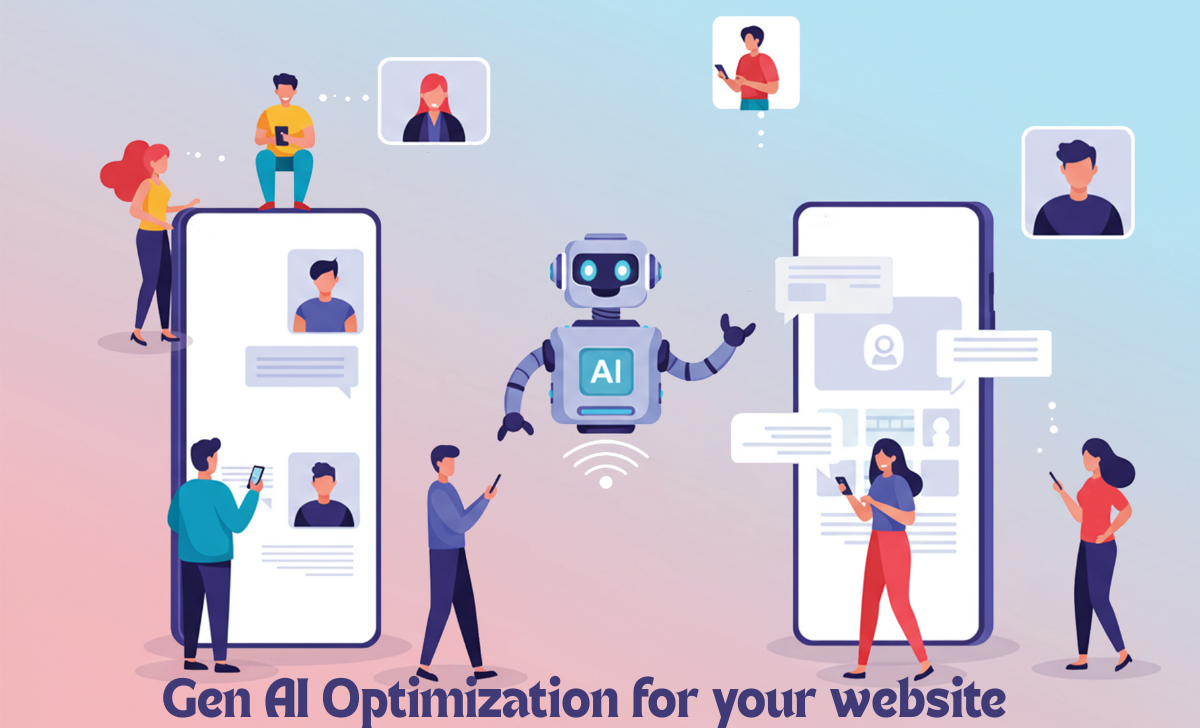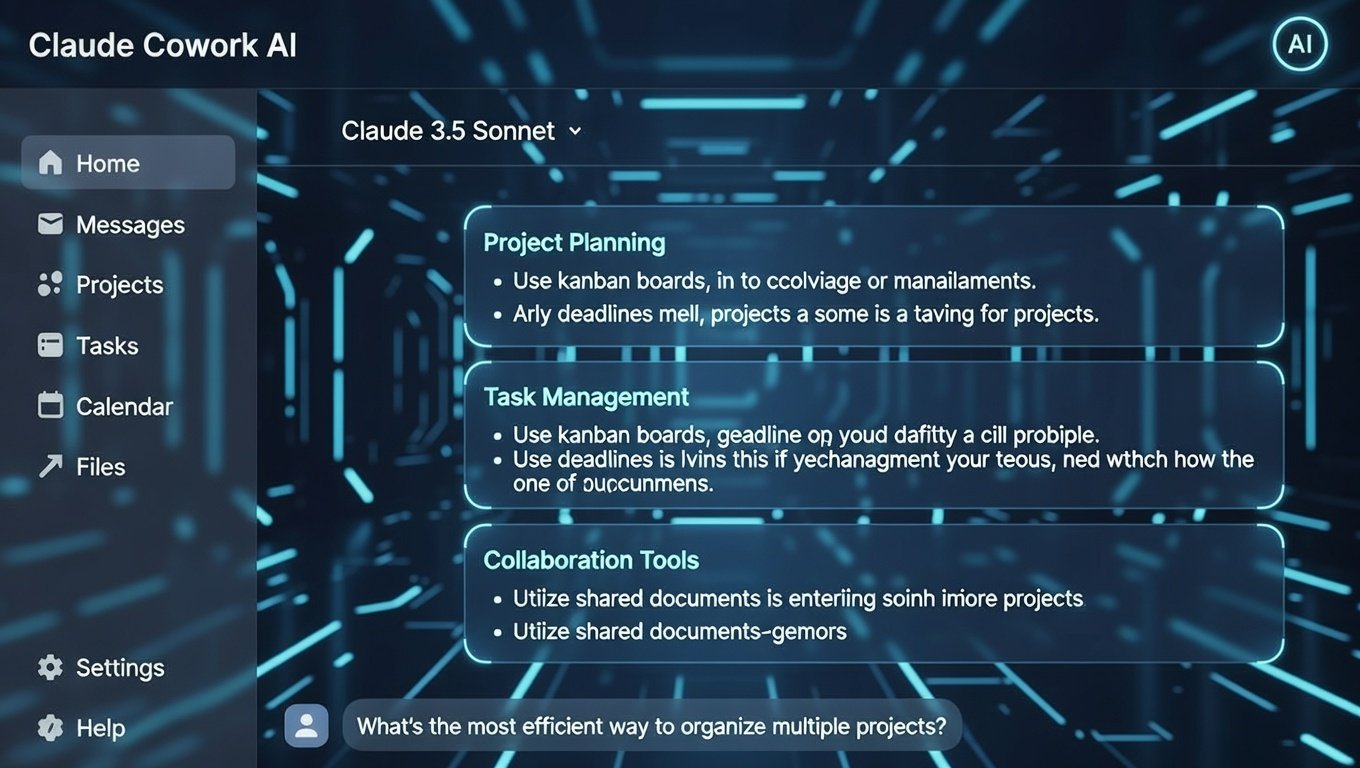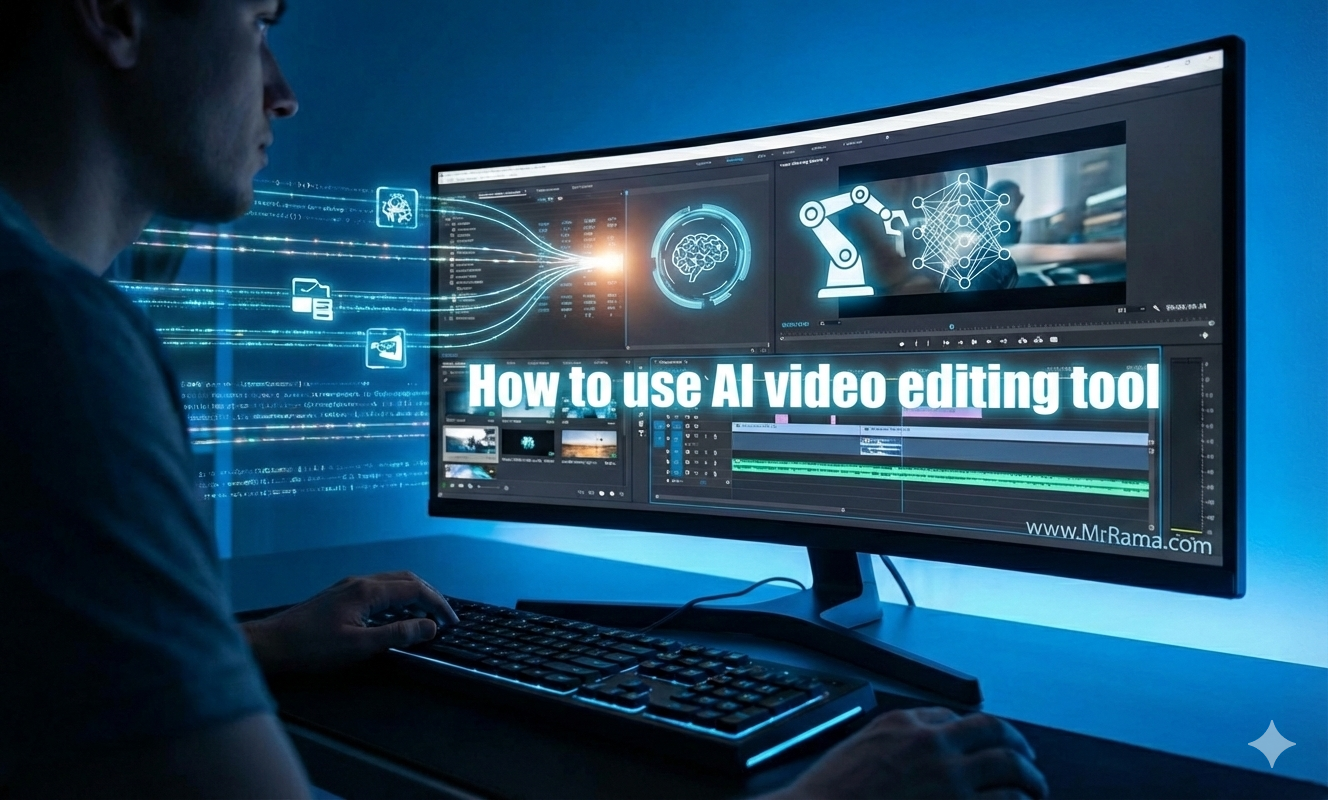Introduction to Generative AI in Business
Generative AI refers to a subset of artificial intelligence that focuses on utilising existing data to create new content, rather than merely analyzing and interpreting data as traditional AI does.
While traditional AI excels in pattern recognition and decision-making based on predefined parameters, generative AI takes a more creative approach, automating the generation of text, images, music, and other forms of content.
This capability marks a significant evolution in the field of AI and presents unique opportunities for businesses.
Nowadays, organisations are increasingly seeking innovative solutions to streamline operations and enhance customer interactions.
Generative AI plays a crucial role in modern business strategies by improving efficiency and reaching broader audiences.
From automated content creation to personalized marketing campaigns and responsive customer service, generative AI empowers businesses to enhance performance and stay competitive in their respective industries.
For instance, companies can leverage generative AI to produce engaging articles, reports, and marketing materials that resonate with their target audience.
This use of technology not only saves time and resources but also allows for a more dynamic content generation that aligns with evolving customer preferences. Additionally, generative AI can be harnessed in customer support systems, creating intelligent chatbots capable of responding to inquiries in real-time, thereby improving customer experience significantly.
Furthermore, as businesses strive for operational excellence, the ability of generative AI to automate routine tasks cannot be overlooked.
Streamlining processes such as data entry, reporting, and even product design, contributes to enhancing productivity and freeing employees to focus on more strategic initiatives.
The relevance of generative AI in business today is underscored by its potential to drive innovation and foster long-term growth, making it an essential component of contemporary business strategies.
Benefits of Generative AI for Your Website
Generative AI has emerged as a transformative technology, bringing numerous advantages to business websites. One of the primary benefits is improved content creation.
By utilizing generative AI tools, businesses can produce high-quality written content rapidly and efficiently. These tools can generate articles, product descriptions, and even marketing copy, allowing businesses to maintain a consistent online presence while freeing up valuable human resources for more nuanced tasks.
This automated content creation not only saves time but also ensures that the content remains relevant and engaging for target audiences.
Moreover, generative AI enhances personalized user experiences. By analyzing user data and preferences, AI algorithms can tailor content, recommendations, and offers to suit individual users.
This level of customization fosters a connection between the user and the brand, leading to increased engagement and higher conversion rates.
As websites become more adept at addressing user needs through AI-driven personalized experiences, businesses are likely to see significant boosts in customer satisfaction and loyalty.
Another crucial benefit of generative AI is its enhanced SEO capabilities. AI can optimize website content to improve search engine rankings, enabling businesses to reach a larger audience.
By analyzing trends and keywords, generative AI tools can help create SEO-friendly content aligned with current consumer interests. The use of AI can aid in monitoring website performance metrics, enabling companies to adjust their strategies according to data-driven insights.
In conclusion, generative AI offers a multitude of benefits for business websites, from streamlining content creation to delivering personalized user experiences and enhancing SEO efforts. By leveraging these strengths, companies can make informed decisions that lead to improved visibility and success in the digital landscape.
Key Generative AI Technologies for Website Optimization
In the evolving landscape of digital technology, generative AI has emerged as a critical asset for enhancing website optimization.
Among the key technologies driving this transformation is Natural Language Processing (NLP). NLP enables machines to understand, interpret, and generate human language in a contextually relevant manner.
This capability can significantly improve user interactions on a website through more intuitive chatbots and tailored content recommendations, enhancing the overall user experience and engagement.
Another pivotal technology in generative AI is machine learning algorithms, which facilitate the analysis of vast datasets to identify patterns and insights that can inform optimization strategies.
By applying machine learning, businesses can predict user behavior and preferences, allowing for the personalization of content, imagery, and navigation features on their websites.
This customization not only increases the likelihood of conversions but also fosters a deeper connection between the user and the brand. Furthermore, machine learning can assist in A/B testing, helping businesses determine which design or content variations perform best.
AI-driven design tools represent another significant advancement in generative AI technology. These tools harness advanced algorithms to automate design processes, generate layout options, and optimise visual elements based on user interactions.
For instance, AI-driven tools can analyse user data to recommend adjustments to colour schemes, font styles, and imagery placement that resonate more By streamlining the design process, businesses can save time and resources while continuously refining their websites to meet evolving user preferences.
By leveraging these generative AI technologies, NLP, machine learning algorithms, and AI-driven design tools, businesses can enhance their website’s performance, ultimately leading to improved customer satisfaction and higher conversion rates.
The integration of these strategies into website optimisation plans is vital for staying competitive in the digital landscape.
How to Implement Generative AI on Your Website
Implementing generative AI on your business website involves several crucial steps that can help you harness its capabilities effectively.
The first step in this process is thorough planning. You should identify the specific goals you wish to achieve using generative AI, such as enhancing customer interaction, automating content creation, or personalising user experiences.
Defining clear objectives will guide you in selecting the appropriate generative AI tools that align with your business needs.
Once your goals are established, the next step is to select the right generative AI technologies. Various tools are available, ranging from text generation software to image synthesis applications.
Researching different solutions, reviewing their capabilities, and analysing customer feedback will help you make informed decisions. Look for tools that offer easy integration options, extensive support, and scalability to accommodate future growth.
After selecting the suitable generative AI tools, the integration process begins. This typically involves linking the AI solutions with your existing website architecture.
Depending on your technical expertise, you might collaborate with IT professionals or consult with the chosen tool’s support team to facilitate a smooth integration.
Ensure that the AI components align seamlessly with your website’s user interface and enhance overall performance.
While implementing generative AI, be mindful of potential barriers such as data privacy concerns and the ethical implications of AI-generated content.
To overcome these challenges, develop a comprehensive strategy that includes user guidelines and compliance measures.
Educating stakeholders, including employees and customers, about AI’s capabilities and limitations is equally essential in ensuring a successful deployment.
By following these steps, businesses can effectively implement generative AI, fostering innovation and optimizing their online presence.
Optimizing Content with Generative AI
In the rapidly evolving digital landscape, leveraging generative AI has emerged as a transformative strategy for optimizing website content.
One of the notable applications of generative AI is automated content creation, where businesses can utilize AI-driven tools to produce high-quality text efficiently.
These tools analyze large datasets to generate articles, blog posts, or product descriptions that resonate with target audiences.
By utilizing generative AI for content creation, businesses can maintain a regular publishing schedule, ensuring their websites remain fresh and engaging.
Content curation is another area where generative AI proves invaluable. Through its ability to analyze user preferences and browsing patterns, generative AI can assist in selecting relevant articles, videos, or images that align with audience interests.
This not only helps in providing visitors with a customized browsing experience but also enhances user engagement by presenting them with topics they are more inclined to explore.
Furthermore, curating content helps in establishing your website as a credible source of information, improving both the user experience and SEO performance.
Personalization strategies powered by generative AI are essential for fostering deeper user connections. By employing algorithms that learn from individual user behavior, businesses can tailor content recommendations, ensuring that visitors see products or articles that match their specific interests.
This level of personalization not only boosts engagement rates but also contributes to lower bounce rates and higher conversion rates, ultimately supporting the website’s overall performance metrics.
In conclusion, the integration of generative AI into content optimization strategies—through automated creation, curation, and personalized experiences—can significantly enhance a business website’s user engagement and SEO performance.
By harnessing these techniques, businesses can ensure they remain at the forefront of the digital landscape, appealing to their audiences more effectively.
Enhancing User Experience Through AI
In the contemporary digital landscape, enhancing user experience is paramount to the success of any business website, and generative AI plays a vital role in achieving this goal.
One of the primary advantages of generative AI is its ability to deliver dynamic content that adapts to individual user preferences and behaviors.
By utilizing algorithms that analyze user interactions, businesses can present tailored content that resonates with visitors, thereby significantly improving engagement levels and reducing bounce rates.
Another vital application of generative AI is the integration of chatbots. These AI-driven virtual assistants can interact with users in real-time, providing immediate assistance with inquiries or concerns.
Chatbots are programmed to understand and respond to a variety of user prompts, ensuring that customers receive accurate and relevant information without the need for human intervention.
This not only enhances user satisfaction but also streamlines processes, allowing businesses to operate more efficiently.
Furthermore, personalized recommendations fueled by generative AI can lead to higher conversion rates. By analyzing past user behaviors, AI systems can suggest products or services that align with a visitor’s interests, making their website experience more enjoyable and relevant.
This tailored approach fosters a sense of connection, encouraging users to explore offerings that they might otherwise overlook.
It is critical, however, for businesses to maintain transparency in how user data is collected and utilized, thus building trust and ensuring adherence to ethical considerations.
In summary, the implementation of generative AI technologies in business websites not only enhances user experience through dynamic content delivery and interactive features but also encourages customer loyalty.
By embracing these innovations, businesses can create a more engaging environment that keeps users returning, ultimately driving growth and success.
Measuring the Success of Generative AI Optimization
To evaluate the effectiveness of generative AI optimization on a business website, several key performance indicators (KPIs) and metrics must be monitored.
These quantitative measurements provide insight into how well the implementation of generative AI is enhancing various aspects of website performance.
Analyzing these metrics will allow businesses to determine whether their digital strategies are effective or if adjustments are necessary.
One of the primary metrics to consider is website traffic. This includes both the number of unique visitors and the overall traffic volume.
By analyzing changes in traffic patterns pre- and post-optimization, businesses can gauge user interest and the impact of AI-driven content generation.
A understanding the sources of traffic—whether organic, paid, or referral—is crucial in identifying the most effective channels for engagement.
User engagement is another vital KPI, which can be assessed through metrics such as average session duration, pages per session, and bounce rate.
High engagement rates often indicate that users find the content generated by AI to be relevant and useful. Measuring interactions, including comments, shares, and likes on generated content, offers further insights into user interest and satisfaction.
Conversion rates stand as one of the most important success metrics in any business strategy. This includes measuring the percentage of website visitors who take desired actions, such as signing up for newsletters, making purchases, or filling out contact forms.
Analyzing conversion rates post-implementation of generative AI strategies can highlight the effectiveness of AI-driven content in motivating users to engage decisively with the website.
Lastly, return on investment (ROI) must be evaluated. This involves measuring the financial gains or losses associated with generative AI optimization efforts.
By comparing the costs of implementing AI solutions against the revenue generated from improved traffic and conversion rates, businesses can ascertain the overall economic impact of their optimization strategies.
Common Misconceptions About Generative AI
Generative AI has garnered considerable attention in recent years, particularly in the realm of website optimization.
However, there are several misconceptions that can cloud understanding and hinder effective implementation. One of the most persistent myths is that generative AI can automate all aspects of website development and performance enhancement.
In reality, while generative AI can assist in generating content, optimizing user experience, and analyzing data, it cannot replace the nuanced decision-making process that human designers and developers provide.
Therefore, a collaborative approach, where AI tools augment human expertise, is necessary for achieving optimal results.
Another common misconception is that generative AI guarantees a significant and immediate improvement in website performance.
Although generative AI can produce impressive outputs, the effectiveness of these optimizations is contingent upon the quality of the data it processes and the algorithms it employs.
Furthermore, the optimization process involves continual testing and adjustments, which AI alone cannot adequately handle without human oversight.
This necessity for ongoing evaluation and fine-tuning underlines the importance of a well-rounded strategy that integrates both AI capabilities and human judgment.
Ethical considerations also frequently come into play when discussing generative AI. Some believe that AI-generated content is free from bias and ethical dilemmas, yet this is far from the truth.
Generative AI systems can inadvertently perpetuate biases present in the data they are trained on, leading to outcomes that may not align with a brand’s ethical standards.
Thus, awareness of the limitations and potential consequences of generative AI implementations is crucial for businesses seeking to leverage this technology responsibly.
Recognizing these misconceptions is vital for organizations aiming to utilize generative AI effectively to enhance their website’s performance.
Future Trends in Generative AI for Business Web Optimization
As generative AI continues to evolve, its applications in business web optimization are becoming increasingly sophisticated.
The future of this technology holds exciting prospects for enhancing the performance and user experience of websites.
One of the most significant trends is the integration of AI-driven personalization. Businesses are expected to leverage generative AI to analyze user behavior and preferences, enabling more tailored content delivery that directly appeals to specific audience segments.
This hyper-personalization aims to improve engagement rates and customer satisfaction, resulting in higher conversion rates.
Moreover, advancements in natural language processing (NLP) will enhance chatbots and virtual assistants, making them more effective in customer service roles.
Future iterations of these AI solutions will likely possess the ability to understand complex queries and provide contextually relevant responses, ensuring a seamless user experience.
As businesses implement these technologies, they will cultivate stronger relationships with their customers, fostering loyalty and enhancing brand reputation.
Another notable trend is the rise of AI-powered analytics tools that will provide businesses with deeper insights into website performance.
By predicting user behavior and identifying bottlenecks, these tools will empower businesses to take proactive measures to address issues before they escalate.
Consequently, web optimization will transition from a reactive to a proactive process, enabling companies to maintain a competitive edge.
Furthermore, the incorporation of generative design principles in web development will allow businesses to create visually appealing and functional websites that adapt dynamically to varying user needs.
With these trends on the horizon, it is crucial for businesses to stay informed and agile. Adapting to advancements in generative AI not only ensures operational efficiency but also positions companies as leaders in their respective markets. As technology continues to advance, those who embrace change will reap substantial benefits in their online optimization efforts.




